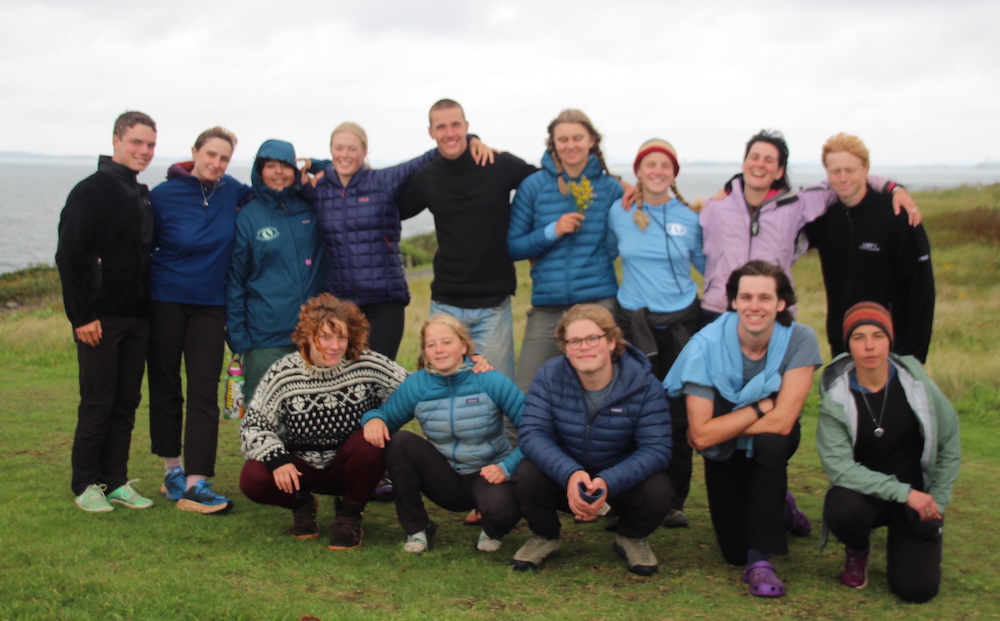2023 Ecuador Semester Blog #1
Greetings from the 2023 Ecuador Semester! Before journeying–first on an expedition in New England, and then to Ecuador–we spent the first ten days of our Semester at the Kroka basecamp. Kroka, as you know, is a wilderness expedition school based out of Marlow, New Hampshire, and sits on 140 acres of forest and farm land. Our schedule was jam packed with preparations for Ecuador, building community, learning new skills and systems, and contributing to the work that needs doing on campus.
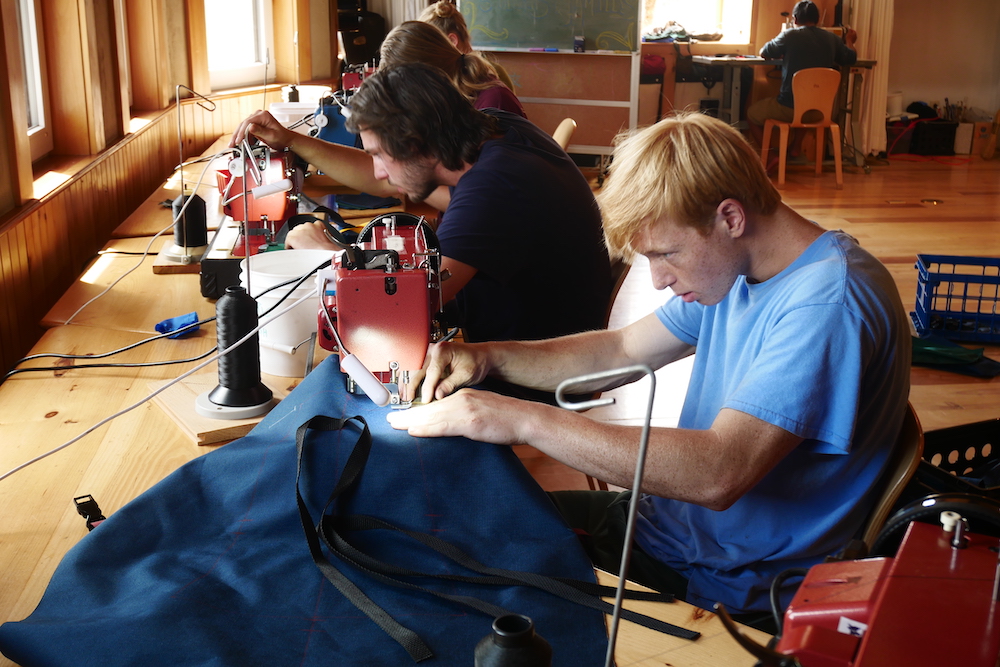
Skyler and Ian sewing backpacks.
A typical day looks like this:
6:10 am We are woken up by Tashi or Jack, our instructors, singing us a song.
6:30 am We gather for morning chores. All the chores are important and keep the Kroka farm and community running. All of us are trained to become responsible for a “chore”: such as feeding the animals, making breakfast, or doing laundry.
8 am Breakfast! We sing while everyone gets back from morning chores and take a moment to be thankful for our meal. After breakfast we go to our “sit spots” – a practice that involves finding a place on the Kroka campus, preferably away from human activity and settlements, and sitting watching the landscape change moment by moment and day by day, letting thoughts come and go. Afterwards, we pack for the day and have Morning Meeting.
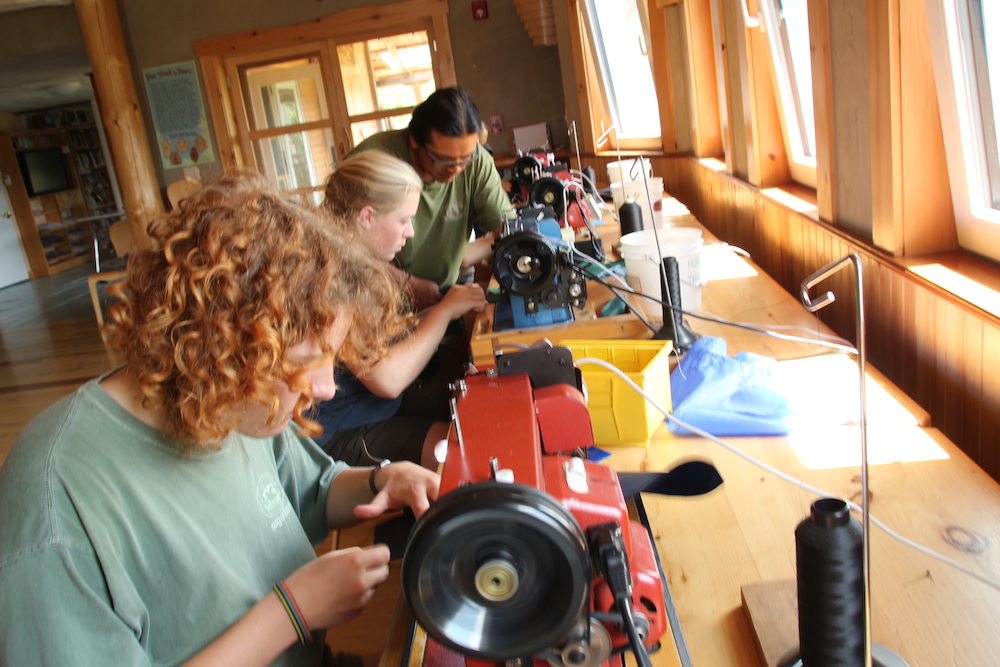
Geova helping Mollie & Jasmine sewing backpacks.
10 am Block 1: Classes & Fitness OR backpack making – we are making backpacks from scratch for our expeditions. Half of us get hard at work making backpacks with Roberto and Geova, who we will meet again in Ecuador! They are very patient as some of us have never used a sewing machine and often make mistakes. The other half have class, fitness with Jack and showers. Our classes vary everyday: one days it’s New England Ecology with Ezra; others, it’s poems and literature with Liz or maps and navigation with Nathan. Fitness has included stretching and mobility, strength training and cardio, and, for some, a swim in Kroka’s pond. We all love swimming in the Kroka pond, especially Julian.
1 pm Lunch and journaling!
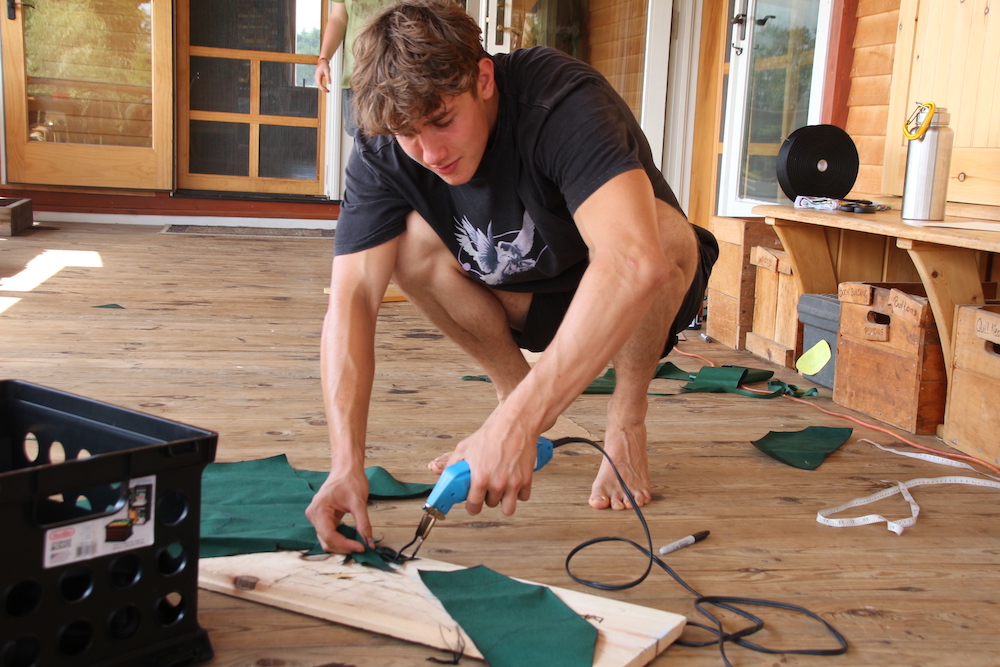
Julian cutting the pattern pieces for the backpacks. Each student had an assembly-line-like role in constructing the 14 backpacks.
2 pm Block 2: We switch and do whichever activities we did not do during the morning block.
5 pm Service projects or study hall to complete homework–such as writing species account for Ezra, revising our poetry or working on our journal–or remove invasive species like buckthorn from the Kroka property
6 pm Dinner: Sometimes we get surprised with dinner in a cool place: One night we had dinner on Pitcher Mountain–which we walked up for sunset–with Tricia and Josh . There was also the day we spent almost all day climbing up Mt. Monadnock. We arrived home and Jennifer and Liz surprised us with a delicious dinner. That was a good day.
7 pm Evening Activity and Evening Meeting, where we discuss what we’re up to and how we’re all feeling.
9 pm Bedtime. 9 hours of sleep for all
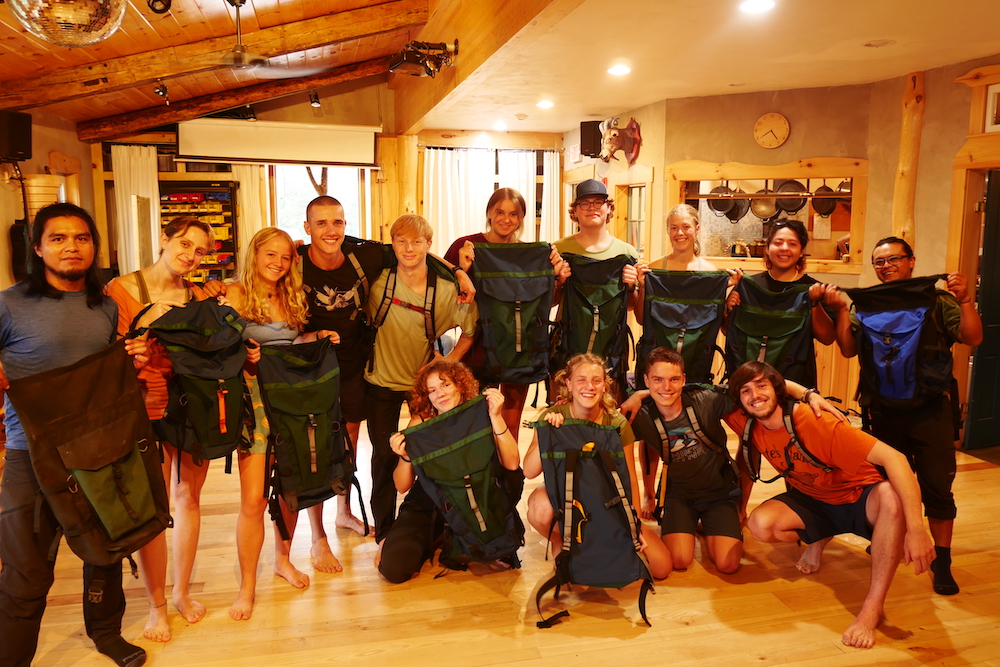
Finished!
Once our backpacks were finished, we were assigned our first Big Jobs. We spent 1 day prepping for our 8-day trip, and off we went!
Day: 1 Rapids to start the expedition!?
The adventure began with Tashi waking us up at 4 o’clock in the morning with a song.
We spent most of the early morning driving to Beecher Falls, Vermont, which is right next to the Canadian border, stopping off on the way for the delicious breakfast prepared by Willow and Verena. The day before had been filled with preparing for our expedition and we were driving a fully loaded Kroka van, complete with a trailer full of canoes, gear and ten days worth of food organized by Anders and Iris, our Food Managers.
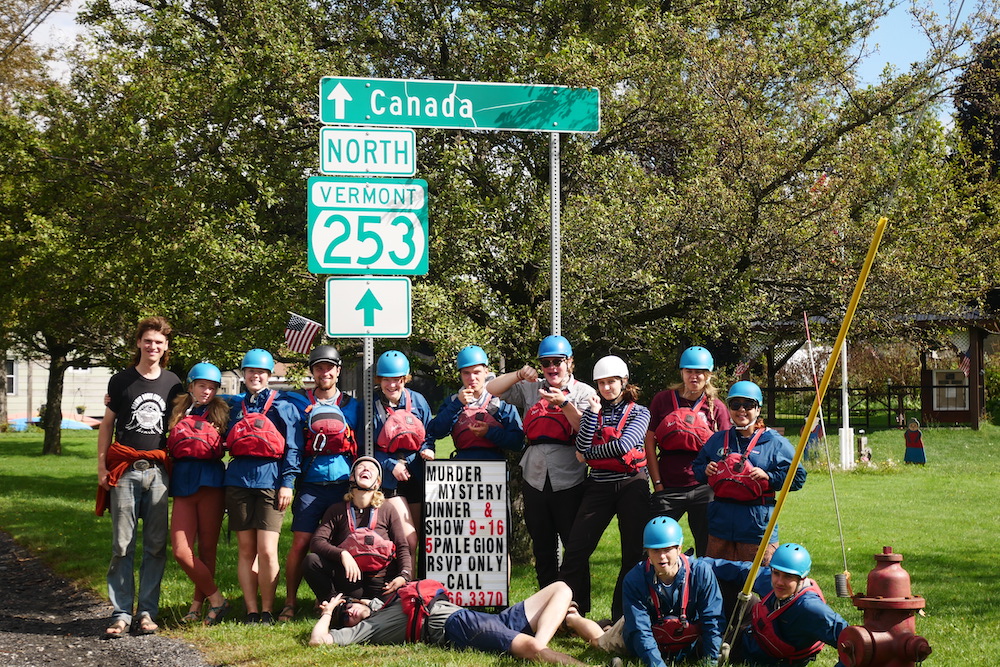 Upon arrival at the canoe launch and after a quick snack, we loaded our boats and set off. We started the expedition with beautiful class II rapids at Beecher Falls which made for an exciting start. Luckily, none of us (or our gear) went for a swim…
Upon arrival at the canoe launch and after a quick snack, we loaded our boats and set off. We started the expedition with beautiful class II rapids at Beecher Falls which made for an exciting start. Luckily, none of us (or our gear) went for a swim…
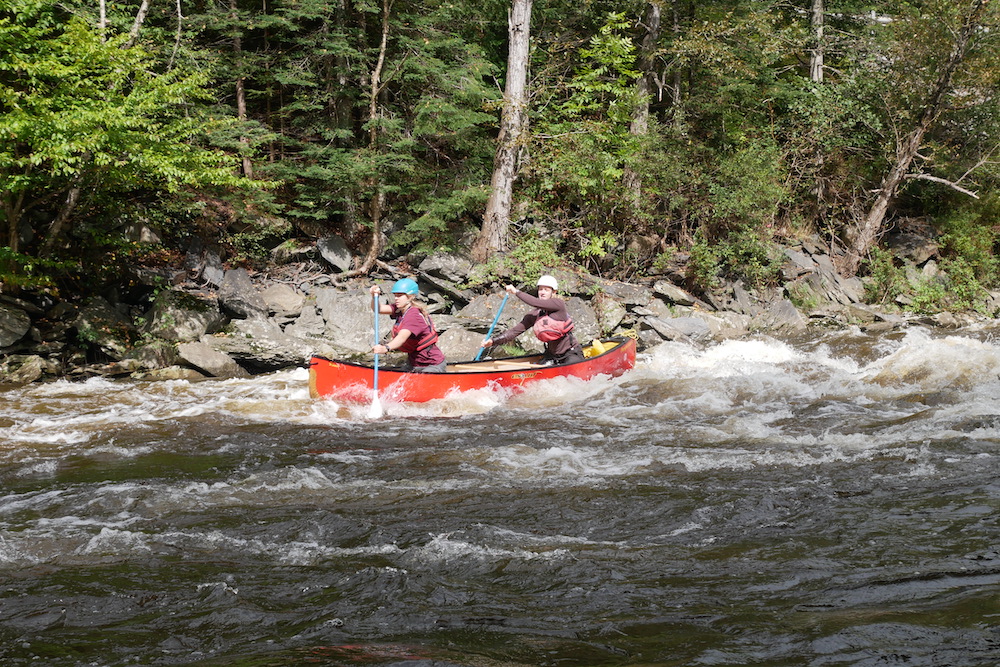
Iris & Willow
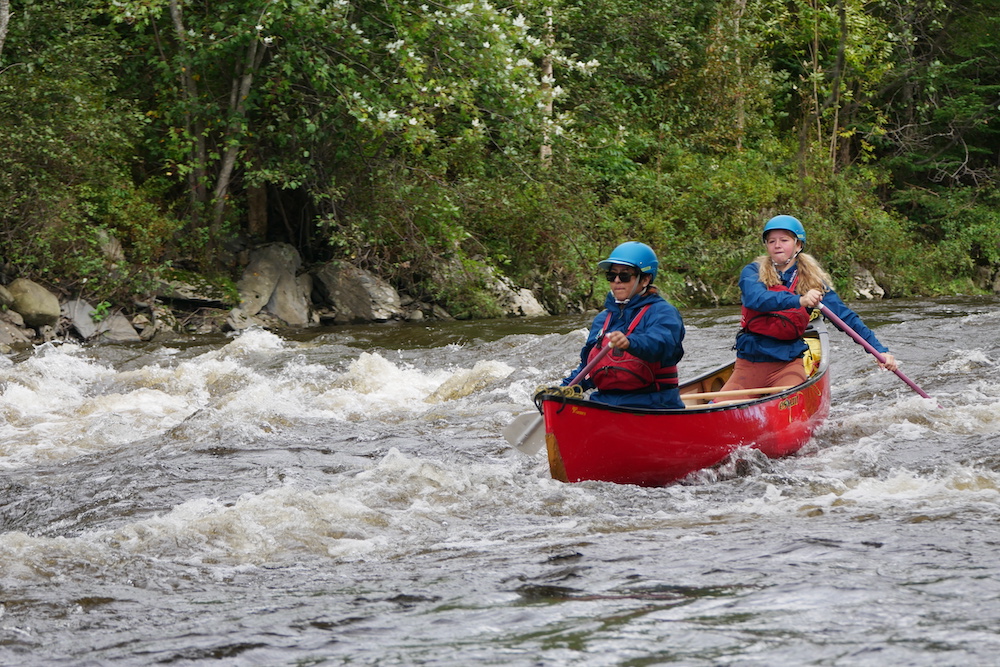
Izabo & Verena
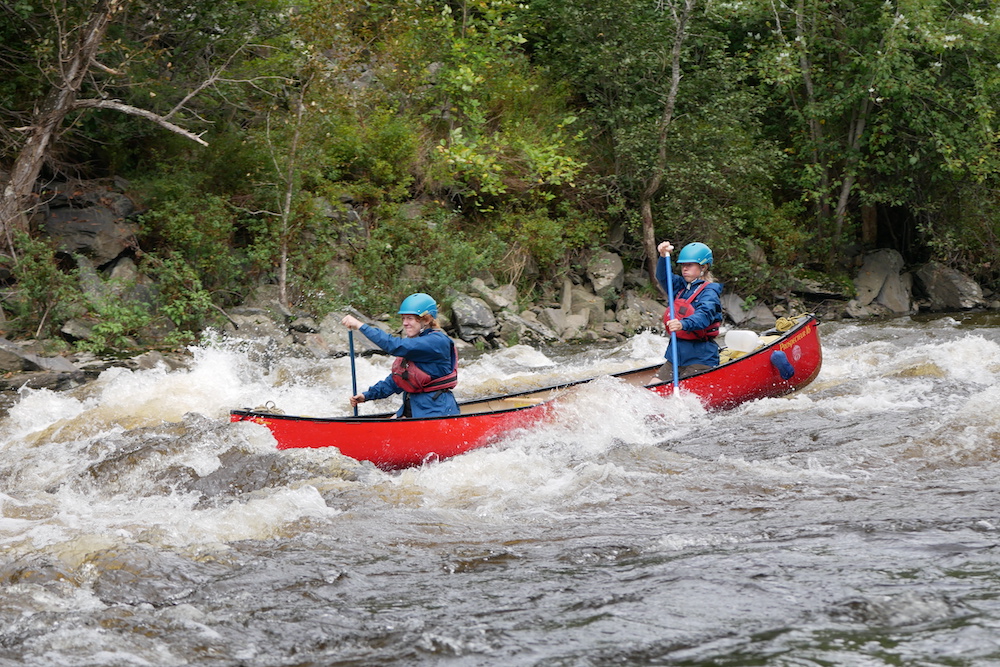
Jasmine & Mollie
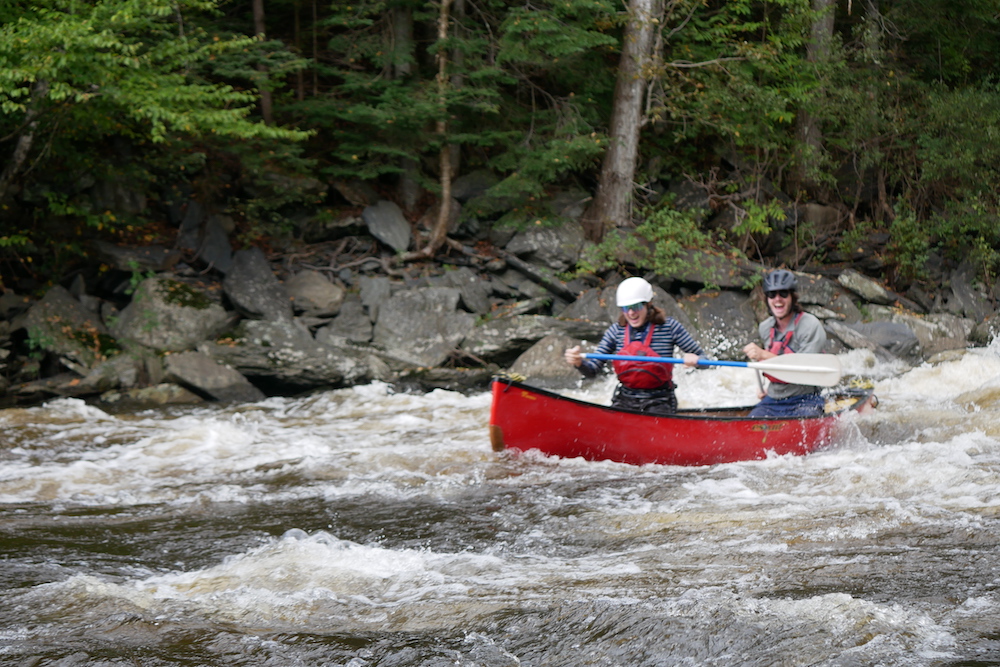
Bridget & Ian
Our first portage was at Canaan Dam, and we carried out boats until we reached Canaan-West Stewartstown Bridge. To portage a canoe you flip it, and lift it over your heads, finding a comfortable way to carry the weight above your shoulders and then walk. Two to four people share the load depending on the weight of the boat. From behind, when the portage for a large group takes place, all you see is a line of vertically floating boats with little human legs underneath. It looks quite hysterical.
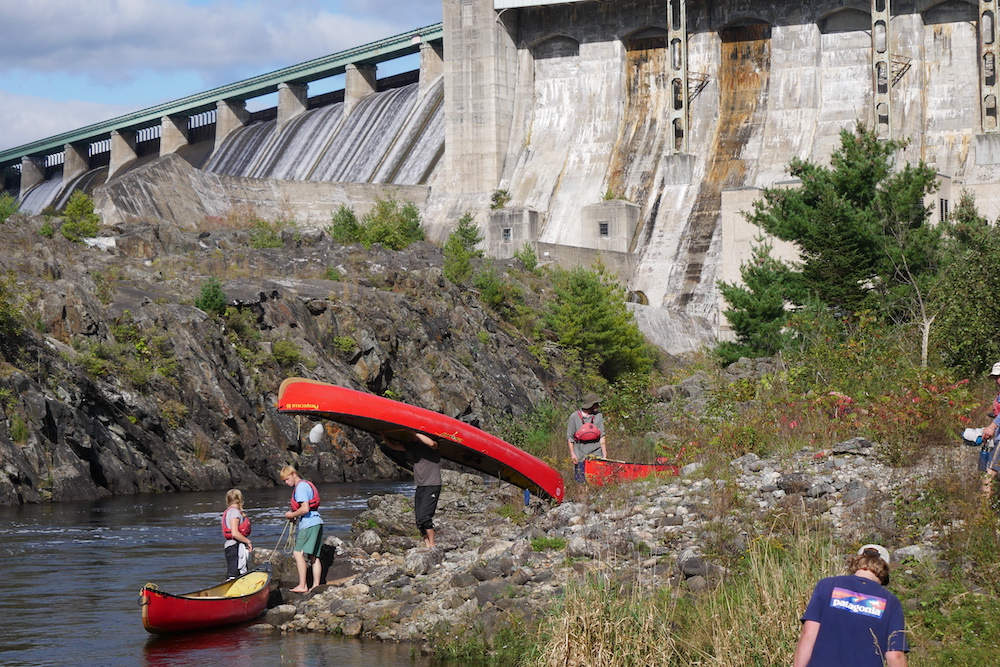 Our 10-mile paddle ended at Holbrook Point Campsite.
Our 10-mile paddle ended at Holbrook Point Campsite.
Day 2: Snails without Houses
We woke up this morning with a slimy creature covering our tents and squished under our bare feet. Our resident European, Julian, was curious about these mollusks and asked the group,“Snails or slugs, which one doesn’t have the houses?”
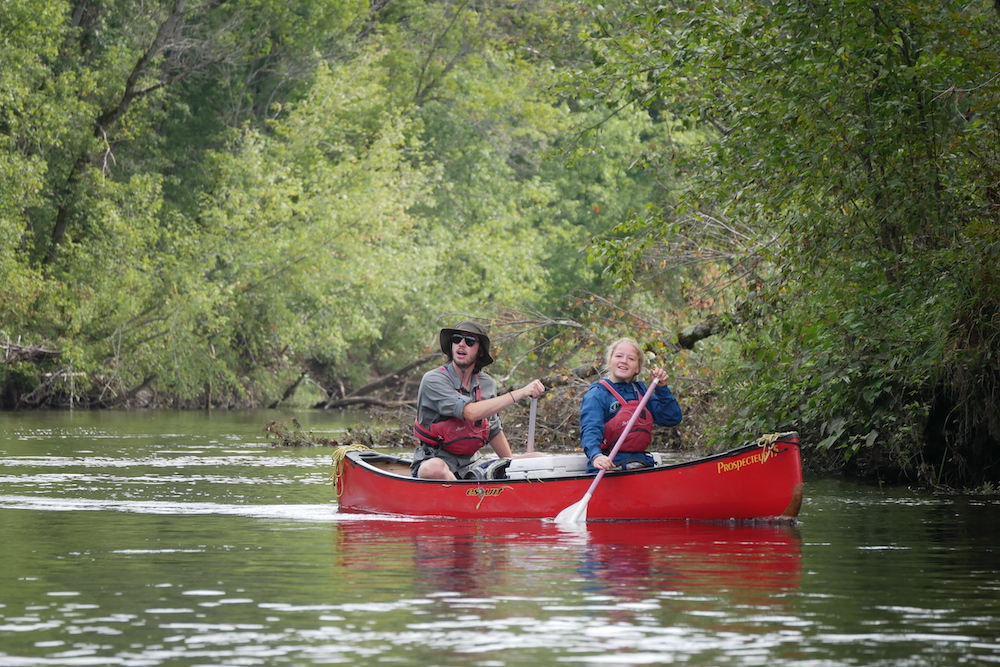 And from that moment on I will refer to slugs as snails without houses. Naively, the group planned for a 28- mile day after our short paddle on the previous one. We saw many birds on this day: bald eagles, great blue herons, and so so many ducks. Unfortunately, this goal was not obtained. We paddled 21 miles and reached Maine Central Railroad Trestle. This campsite was beautiful and boasted a large corn field.
And from that moment on I will refer to slugs as snails without houses. Naively, the group planned for a 28- mile day after our short paddle on the previous one. We saw many birds on this day: bald eagles, great blue herons, and so so many ducks. Unfortunately, this goal was not obtained. We paddled 21 miles and reached Maine Central Railroad Trestle. This campsite was beautiful and boasted a large corn field.
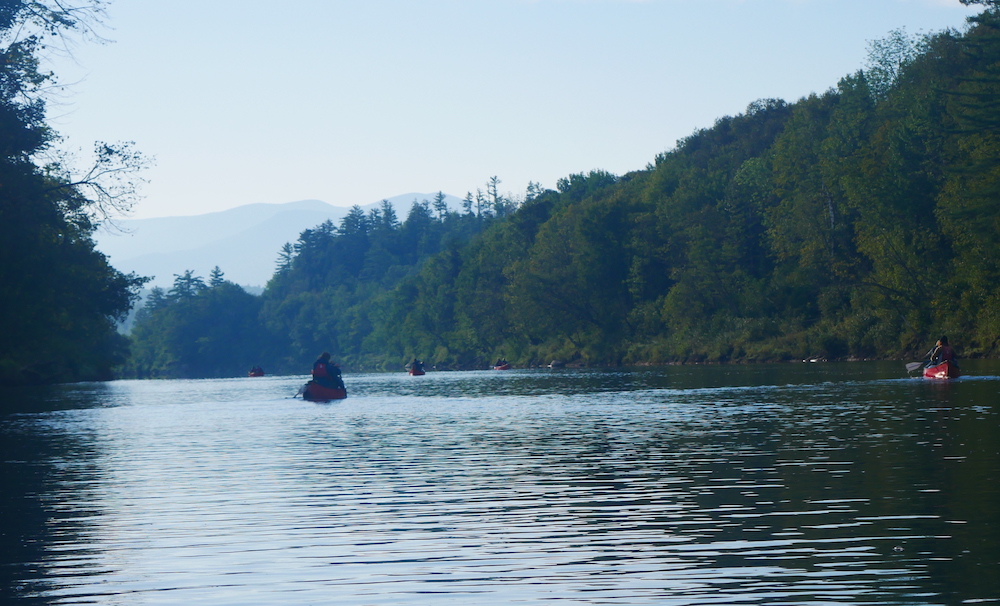 Day 3: The Corn Fairy, “Sailing,” and Race Cars
Day 3: The Corn Fairy, “Sailing,” and Race Cars
We woke up to many surprises on this day. Notably, 40 mile per hour winds and a visit from the mysterious corn fairy. These unexpected winds came from the post-tropical cyclone Lee, but the identity of the corn fairy remains unknown (though we certainly have our guesses). Somehow, upon waking up, the entire group had been given corn from the corn field we camped next to. There was corn in tents, in rainboots, so much corn everywhere. I certainly was surprised by the corn and the corn juice I made in my rain boots when I put them on.
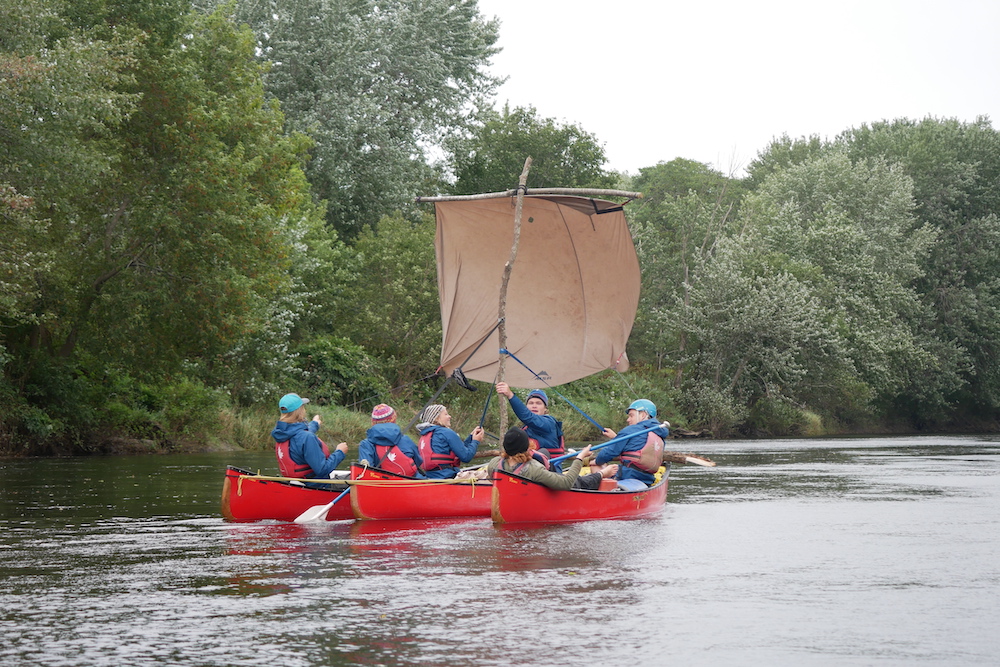 Due to the high winds, we decided to forgo our morning paddling ambitions and harness the gifts of the wind instead. Sailing seemed like a better way to travel! We made our sailboats by tying together 3 canoes and making a mast out of a tarp, paracord and two branches. Now, I can’t say we were the best sailors or that this wind was any good for sailing. What I can say, however, is that we went a staggering 3 MILES in the short, short time of three hours. This may seem slow but when you’ve got wind blowing in the opposite direction of where you want to go this is pretty fast.
Due to the high winds, we decided to forgo our morning paddling ambitions and harness the gifts of the wind instead. Sailing seemed like a better way to travel! We made our sailboats by tying together 3 canoes and making a mast out of a tarp, paracord and two branches. Now, I can’t say we were the best sailors or that this wind was any good for sailing. What I can say, however, is that we went a staggering 3 MILES in the short, short time of three hours. This may seem slow but when you’ve got wind blowing in the opposite direction of where you want to go this is pretty fast.
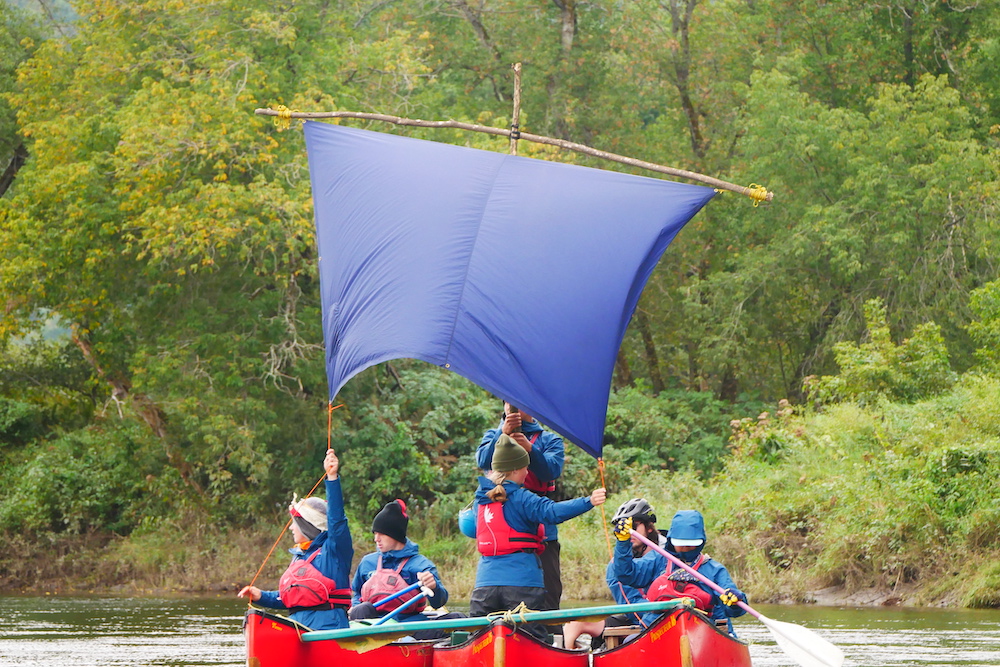 Once we started to actually paddle, we stopped by a motocross race to get water. As we started to paddle away, we all let curiosity get the best of us, tied our boats to trees along the river bank and went go watch. After that short intermission, we continued to paddle to our campsite for the night, the Scott C. Devlin Memorial Campsite. The mileage for the day was 18 miles. This campsite provided us with the best firewood of the whole expedition as it was nestled in a white pine tree grove.
Once we started to actually paddle, we stopped by a motocross race to get water. As we started to paddle away, we all let curiosity get the best of us, tied our boats to trees along the river bank and went go watch. After that short intermission, we continued to paddle to our campsite for the night, the Scott C. Devlin Memorial Campsite. The mileage for the day was 18 miles. This campsite provided us with the best firewood of the whole expedition as it was nestled in a white pine tree grove.
Day 4: Gas Station Coffee and a LONG paddle
I love a sunrise paddle as much as the next person, but getting up at 5 am to paddle on this day was challenging! The real reason we got up this early was because we needed to paddle 24 miles to meet up with Tashi. She was rejoining the group, swapping in with Alex at the Dalton Primitive Campsite.
Our long journey also involved two portages. Upon reaching our first portage, we decided to paddle instead. We felt we could take on the rapids with lower than usual water levels. And we did! Again, no gear or humans went for any involuntary swims. It was much better and more fun than unloading our loaded canoes and walking all our gear up and over and around the dam. Then we had a breakfast of sweet kasha on the river and continued to paddle.
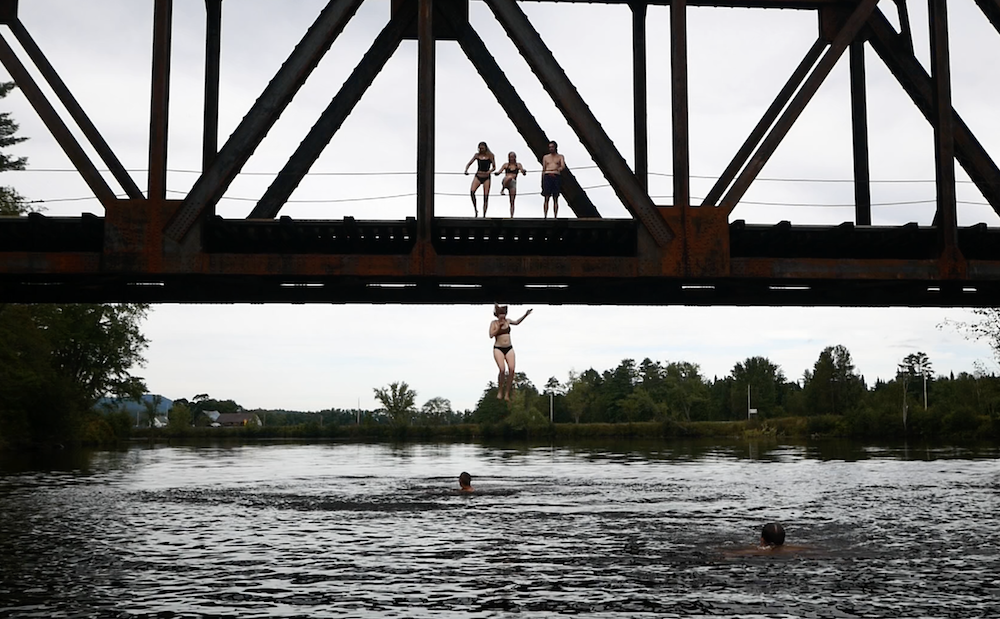 It was Jack’s birthday today and all of us wanted to source them a birthday gift of a cup of coffee. We were approaching morning snack time when we came close to a gas station and decided to stop to give our beloved instructor their birthday wish. While stopped, Iris took the opportunity to climb a tree to collect some oyster mushrooms for dinner. A well earned and much appreciated break was had by all!
It was Jack’s birthday today and all of us wanted to source them a birthday gift of a cup of coffee. We were approaching morning snack time when we came close to a gas station and decided to stop to give our beloved instructor their birthday wish. While stopped, Iris took the opportunity to climb a tree to collect some oyster mushrooms for dinner. A well earned and much appreciated break was had by all!
We paddled for the rest of the day until we stopped at a bridge two miles from our second portage of the day at Gilman Dam. Eamon then asked, “Hey Alex! Can we go bridge jumping?” To be sure this was safe, Alex jumped off the bridge first. We were all delighted to follow. We reached our last portage of the day and finished our 24 miles by reaching Dalton Primitive Campsite. Dinner time!
Day 5: Layover Days aren’t just for Ecuador
As a group, we decided that on this rainy day we would take a day off. Many of us were sore and tired from the previous day’s long paddle. Getting to sleep in past 7am and take a nap during the day felt like an absolute luxury. We said farewell to Alex and got the chance to take a quick bath in a creek nearby camp. Jack gave us a lesson on the “Stability and Instability of Air”. We brainstormed ideas for the skit we would perform about the expedition when we got back to Kroka. The themes that stuck included sailing pirates, the mud bubble taking over the world (you had to be there), and finding the perfect poop site.
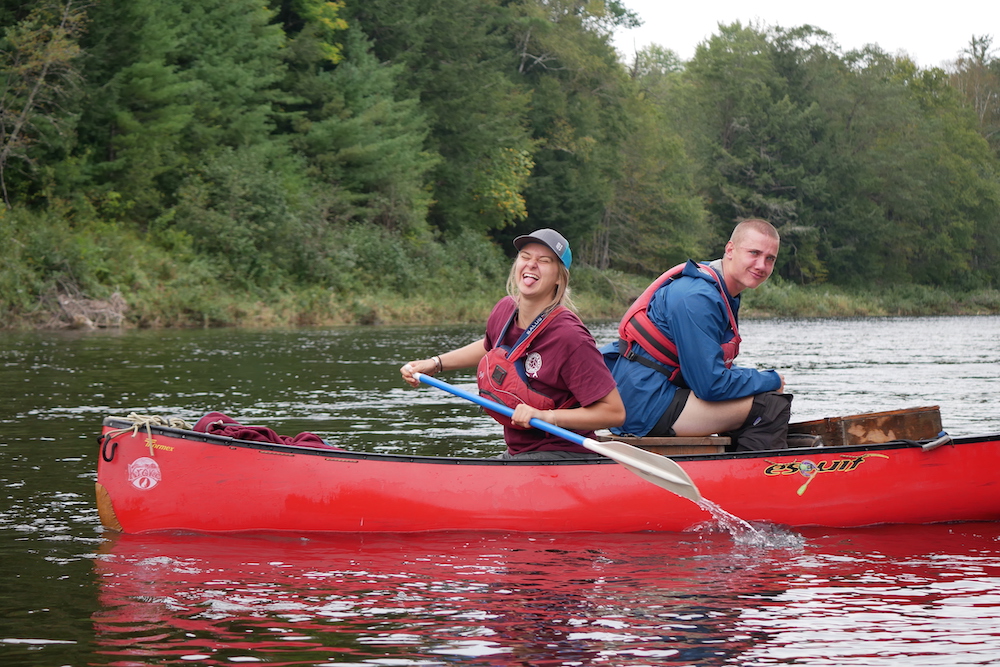
Iris humoring Julian, who advocated that the boat was a perfectly good place to set up the toilet.
Day 6: I bet you’ve Never done a Triple Portage
Today’s paddle was a tough one. Who knew that a 10 mile day could be so hard! For the entirety of our paddle we had the wind coming in perfectly from the direction we were headed. The single portage we did at Moore Dam turned out being our longest one yet (a triple portage all for the price of one!). It turns out you should never trust a map when it says you can portage on both sides of a dam. You should always check before you unload your boats. We learned that the hard way. After carrying most of our gear a half mile down the road next to the dam, we were stopped by several employees of the Moore Dam who told us we were going the wrong way. The portage route was the other side of the dam. We proceeded to pack up all the gear for a second time, walk it all back down the road, paddle to the other side of the dam and do another portage. This long portage not only made us very tired, but also very thirsty and hungry. We eventually made to our home for the night. We had dinner and got to bed at a reasonable time, but it felt late!
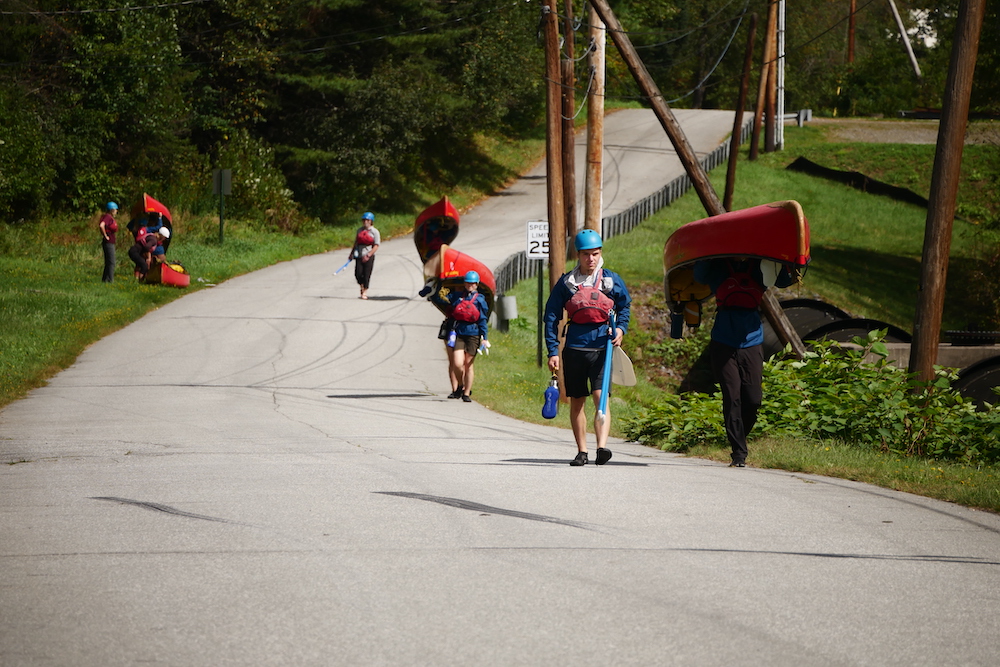 Day 7: Pumpkins and Poison Ivy
Day 7: Pumpkins and Poison Ivy
The sunlight peered through our tents waking us up. What a pleasant surprise after the all the crummy weather we had been having!
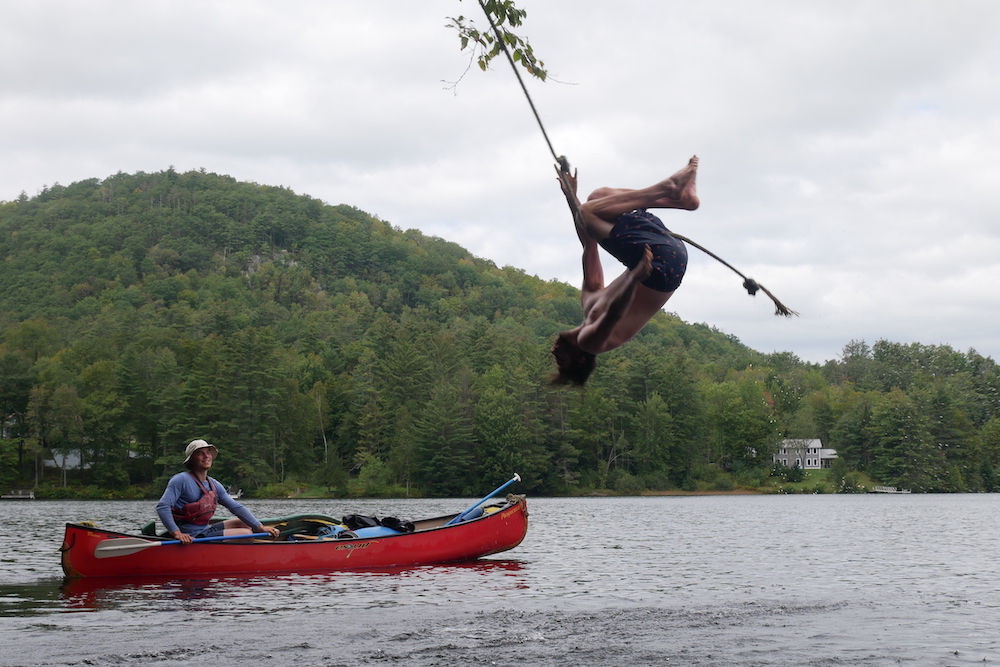
Eamon in the safety boat whilst Ian enjoys the rope swing.
Our paddle to Comerford Dam was short and sweet. We found a rope swing along the way and had some fun jumping into the water before our portage.
It wasn’t a long portage, but oh boy was it STEEP. My friends amazed me as they bravely self-portaged canoes down a steep hill. With a 10-mile paddle complete, we reached our last campsite of the expedition: Stevenson Campsite. It was small and cozy and covered with poison ivy, but also right next to an abandoned pumpkin field. We picked two pumpkins from the field and used them in our dinner, and everyone was able to avoid the poison ivy. We didn’t set up any tents and all slept under the tarp together. Our expedition was coming to an end.
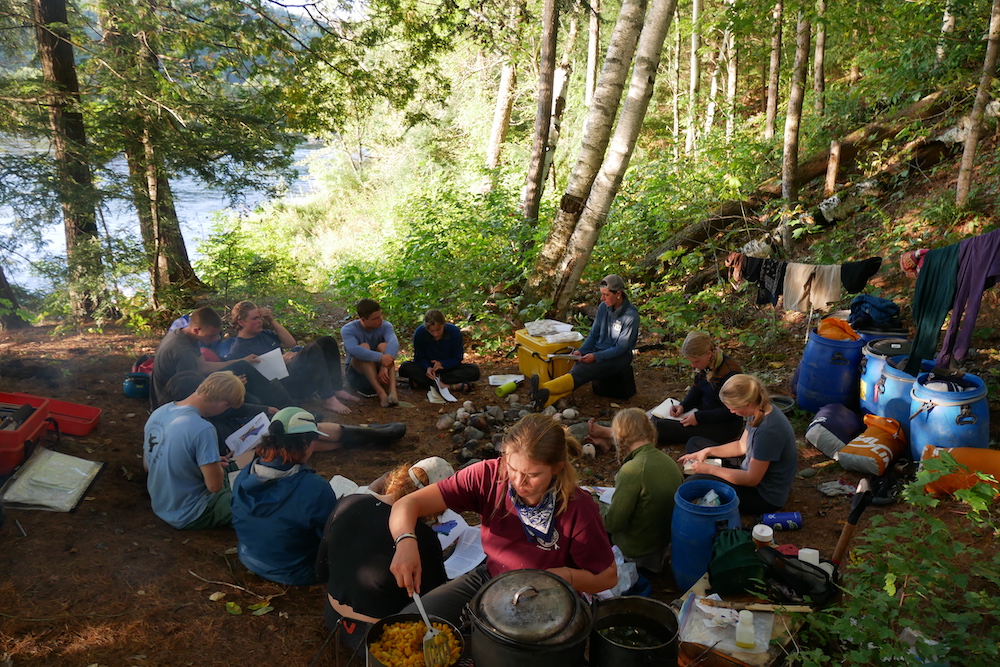 Day 8: Finally, Some More Rapids
Day 8: Finally, Some More Rapids
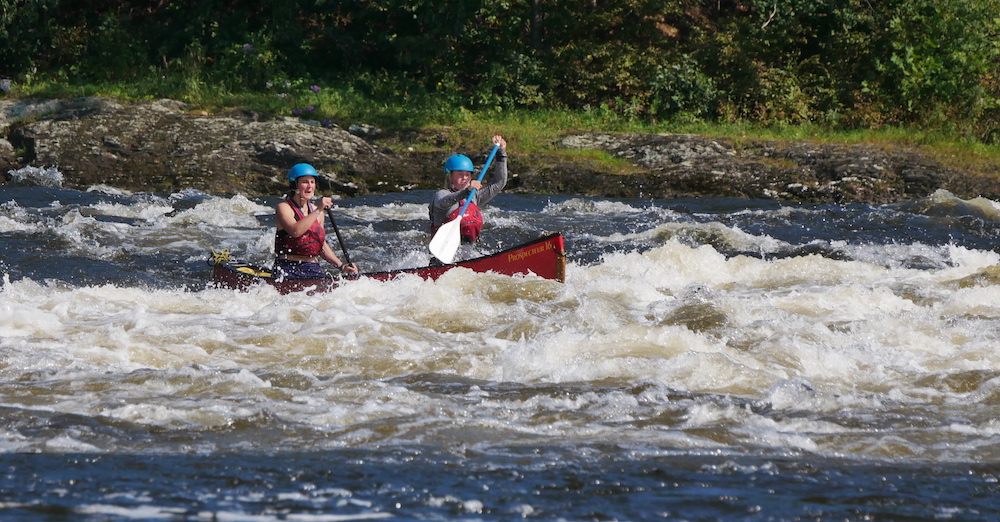 Our paddle to our take-out point, McIndoe Falls Access, was short (1.5 miles) and foggy.
Our paddle to our take-out point, McIndoe Falls Access, was short (1.5 miles) and foggy.
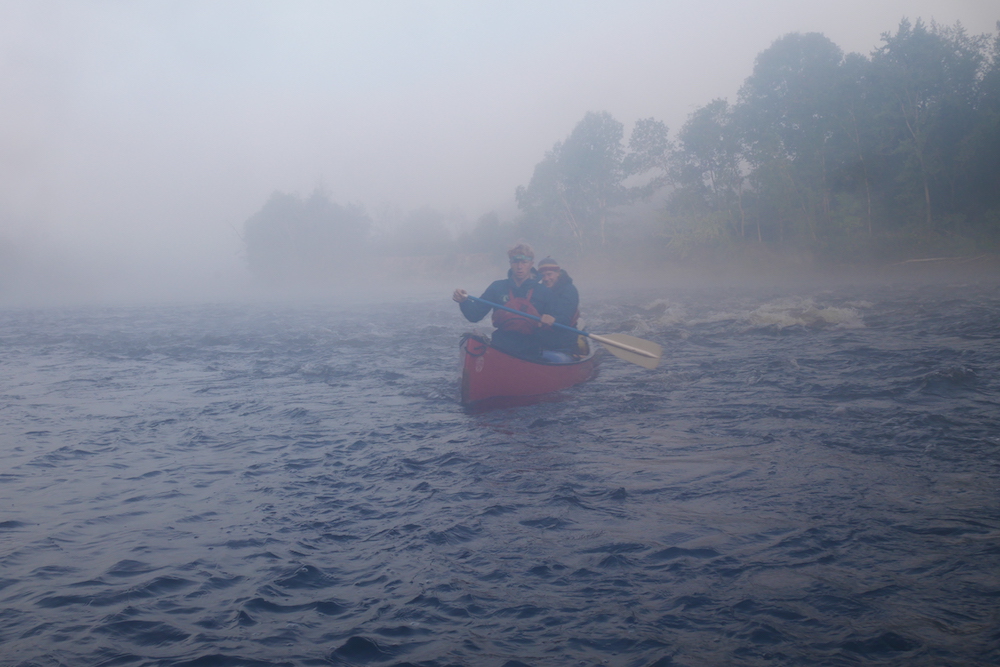 Alex returned in our shuttle van, and once we’d loaded gear and canoes onto the trailer we headed to Sumner Falls. It was time for the final challenge and fun: repeated runs of the rapids there.
Alex returned in our shuttle van, and once we’d loaded gear and canoes onto the trailer we headed to Sumner Falls. It was time for the final challenge and fun: repeated runs of the rapids there.
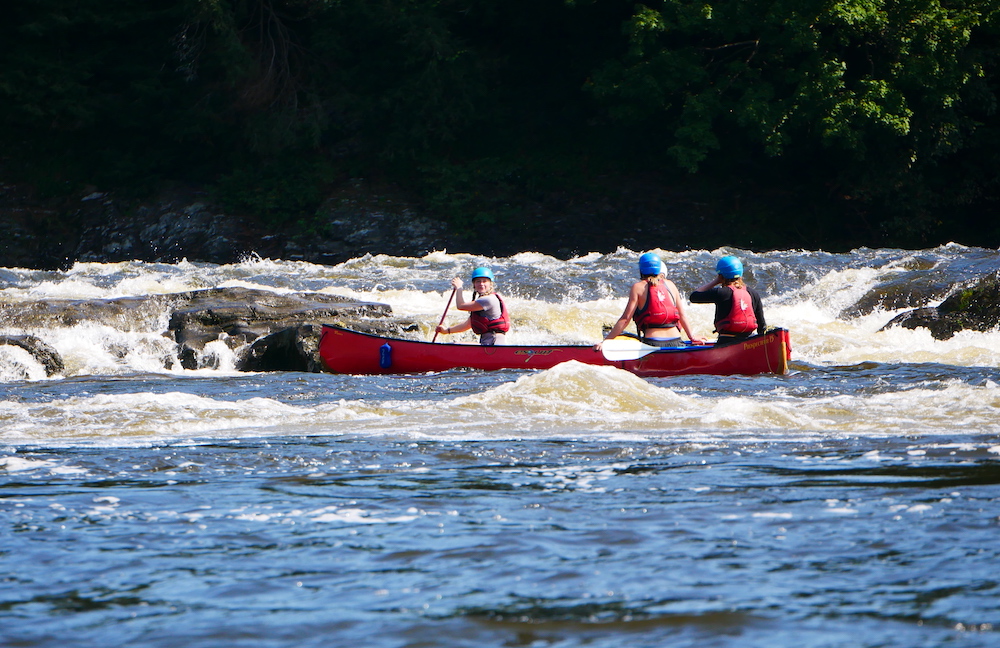 We all got the chance to practice and play around in small rapids before attempting to run the whole line of rapids. Some of us were definitely more successful than others.
We all got the chance to practice and play around in small rapids before attempting to run the whole line of rapids. Some of us were definitely more successful than others.
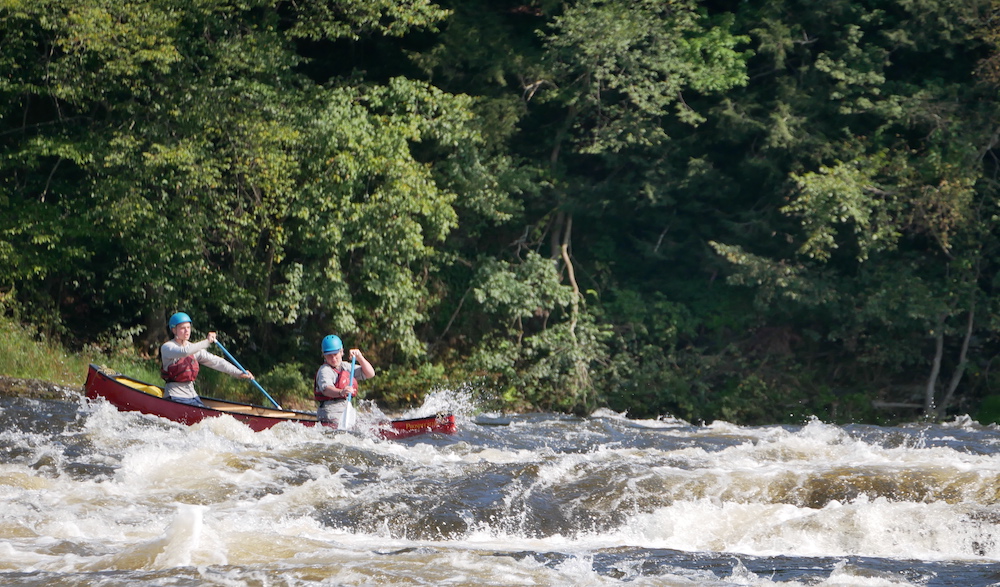
Eamon & Anders, before they got stuck on the rock.
Eamon and Anders somehow got their canoe stuck on a rock halfway through the rapid, and many of us flipped and had a blast getting picked up as the current washed us away. It was a beautiful way to end off our first expedition and return to Kroka base camp.
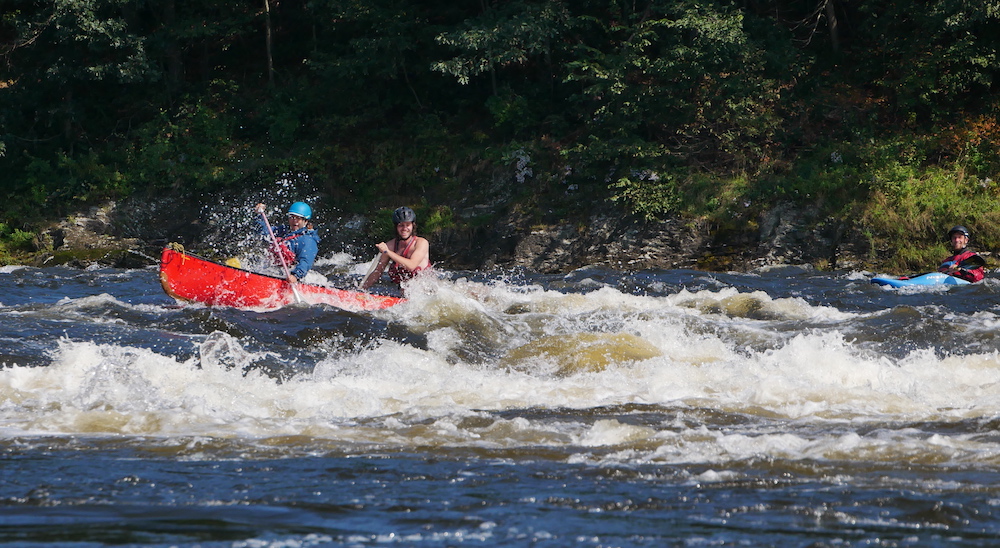
Ecuador is now just two days away!!
Until next time,
Your scribe,
Izabo & the 2023 Ecuador Semester

